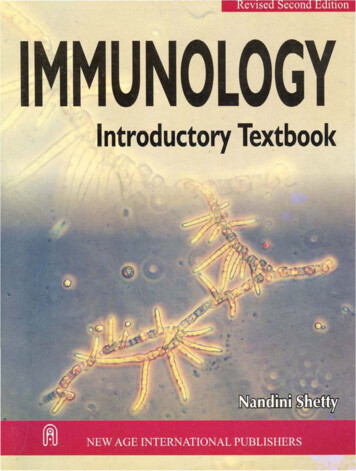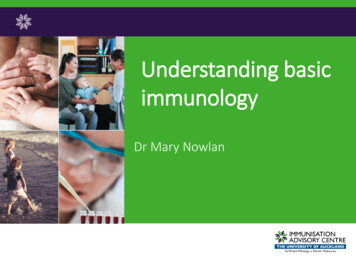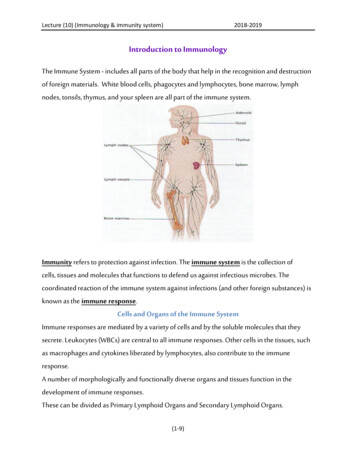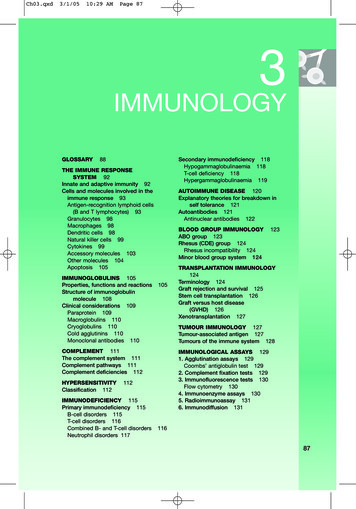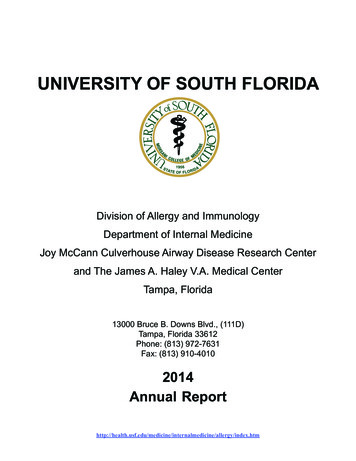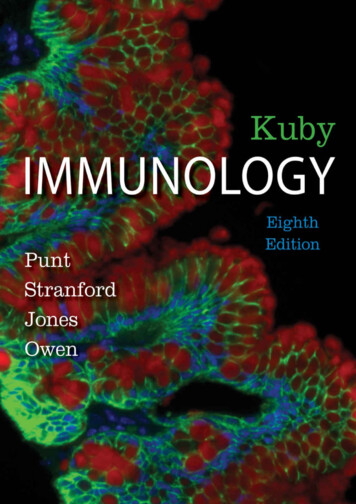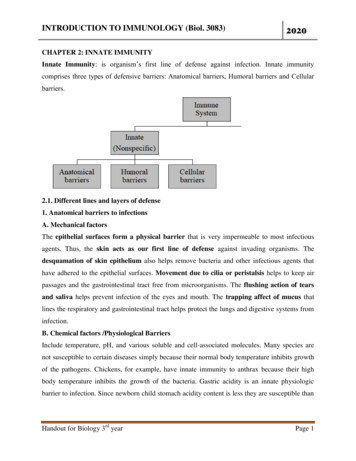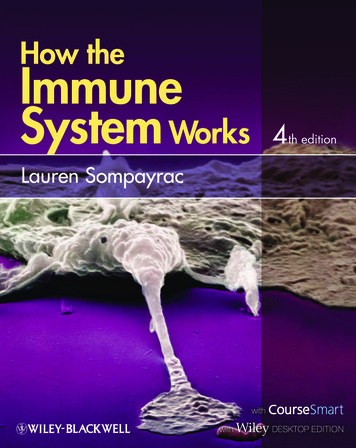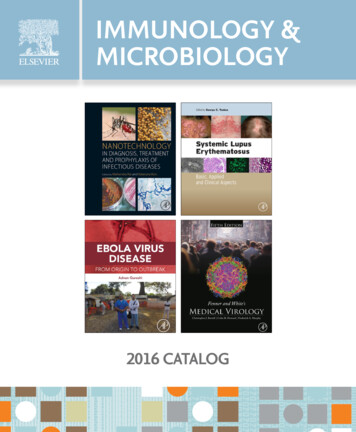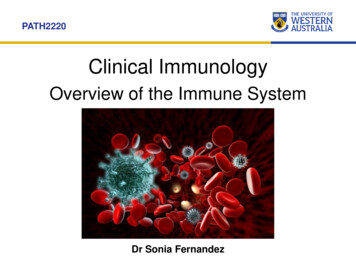
Transcription
Fundamentals of ImmunologyByDr. Gouse Mohiddin Shaik
Fundamentals of immunologyWhat is immunityYou can not prosecutediplomats– they have immunity
Fundamentals of immunologyImmunity – is the ability of host to defense itself from foreign harmful organismsNot all defensemechanismsconstituteimmunity
Fundamentals of immunology Immunity – is the ability of host to defendit self from invading foreign harmfulorganisms and altered self proteins orcells
Types of immunityImmunityAcquired / adaptiveInnate / inbornSpecificNon-specificPhysical barriersSkin, Saliva, Mucous,Stomach acid, Tears1st line of defensePhagocytosis (PAMP – PRR)Antimicrobial proteinsDefisins2nd Line of defense3rd line of gG injection)
Types of immunity Innate immunitySkin, Saliva, tearsmucousNon-specificRecognize molecularpatterns not common inhostImmediate maximalresponseNo immunologicalmemoryAdaptive immunity Have specialized cell– T cells, B cells Specific to particularantigen Time lag betweenexposure and maximalresponse Immunological memory
Types of immunitySpecificNon Specific3rd line of defense2nd line if defense1st line of defenseT cellsPhagocytesSkinB cellPore forming antimicrobial proteinsDefensinsSecretionsAntibodiesInflammatory responseMucous membranes
Basic terms of immunology Antigen – A molecule that stimulatesimmune response (generally proteins) Hapten – Small portion of antigen whichby it self can not elicit immune reaction Epitope – Part of Antigen recognized bythe immune system Antibody – protein (globulin) which isreactive against specific antigen Paratope – part of antibody whichrecognizes the antigen
Basic terms of immunology Cytokines – are proteins used for intercellular communication and intra cellularsignalling pathways Interleukins are kind of cytokines Immunization – is the means ofproviding specific protection against adamaging pathogen Tolerance – refers to an antigen inducedspecific unresponsiveness
Basic terms of immunology Autoimmunity – failure of immunesystem to develop tolerance for selfproteins and starting immune response Immunological memory – capacity ofimmune system to remember a antigenand react more vigorously upon reexposure of the same antigen Involves B cells and T cells
Immunological memory Immunological memoryUpon secondary exposure there will be boost ofimmunity
Basic terms of immunology Inflammation – a set of physiologicalreactions to damage of tissue integrity,leading to protection against infection,localization and restriction of damagedsite and finally to healing Reddening (rubor) Swelling (tumor) Pain (dolar) Increased temperature (calor)
Inflammation
InflammationSeveral chemokines will also released
Organs of immune system Bone marrowSpleenThymusLymphaticsystem
Main ogans of immune system Bone marrow Source of stemcells Maturing site forB cells In Birds B cellsmature in Bursa offabricius
Main organs of immune system Spleen Effective againstblood bornpathogens Replaces old RBC Producescomplementcomponents Have macrophages
Main organs of immune system Thymus Development and differentiation of T cells Where T cell education happens Self and non self discrimination
Development and selection of Tcells in thymus
Main organs of immune systemLymphatic systemJaneway’s Immunobiology 8th edition
Cells of immune system
Janeway's Immunobiology 8th edition . Cells of immune system . Title: Slide 1 Author: NIAID Created Date: 9/3/2013 8:43:18 AM .

